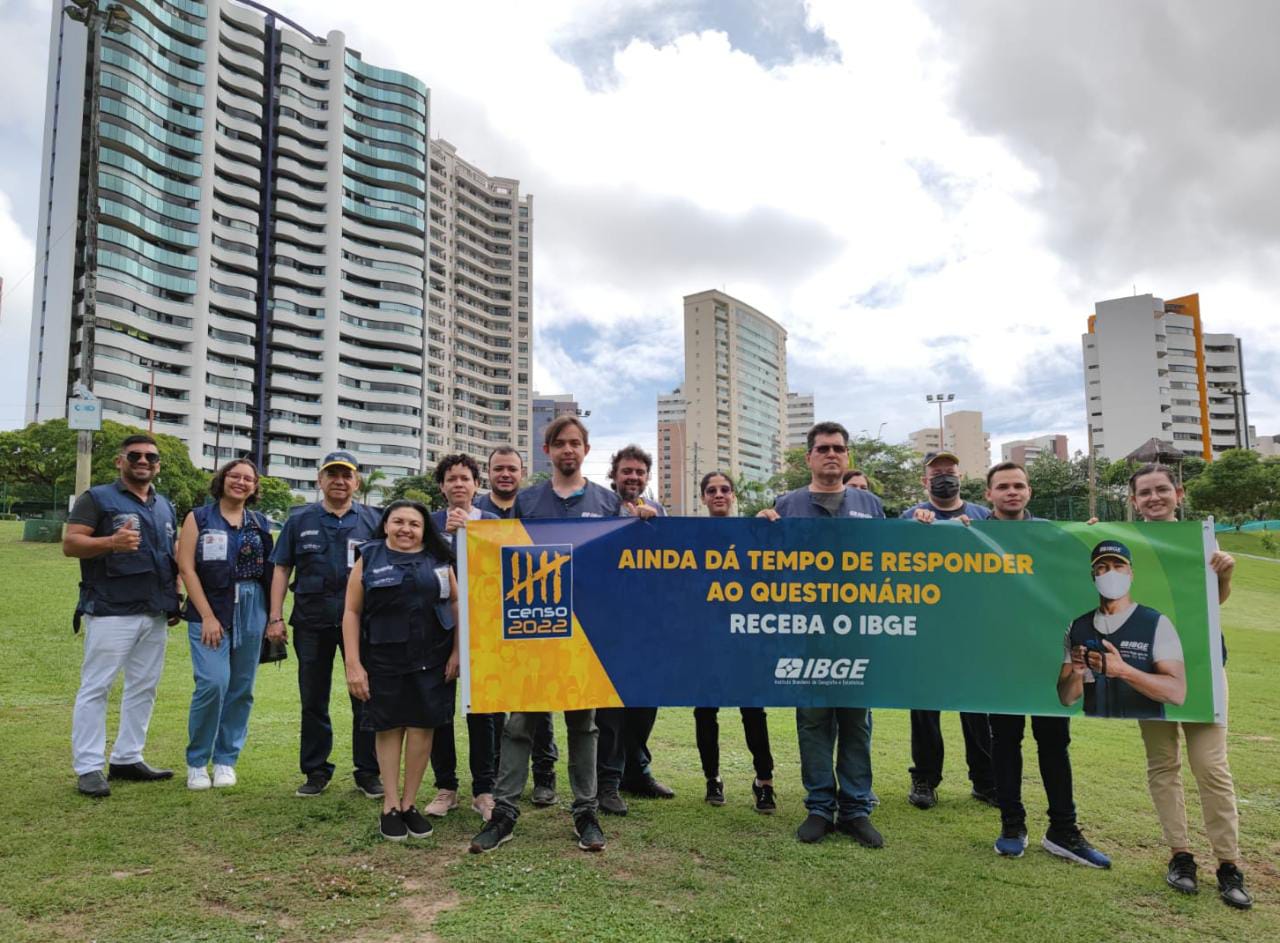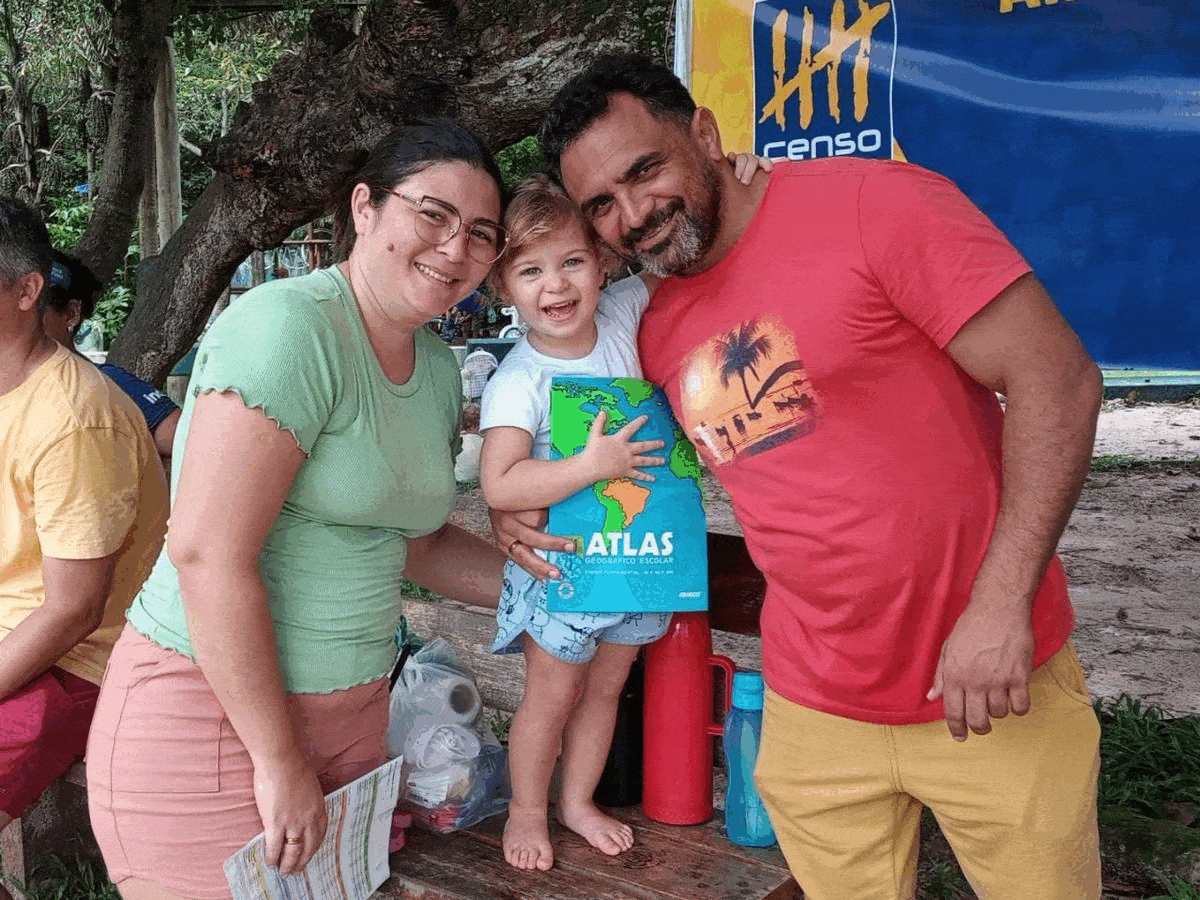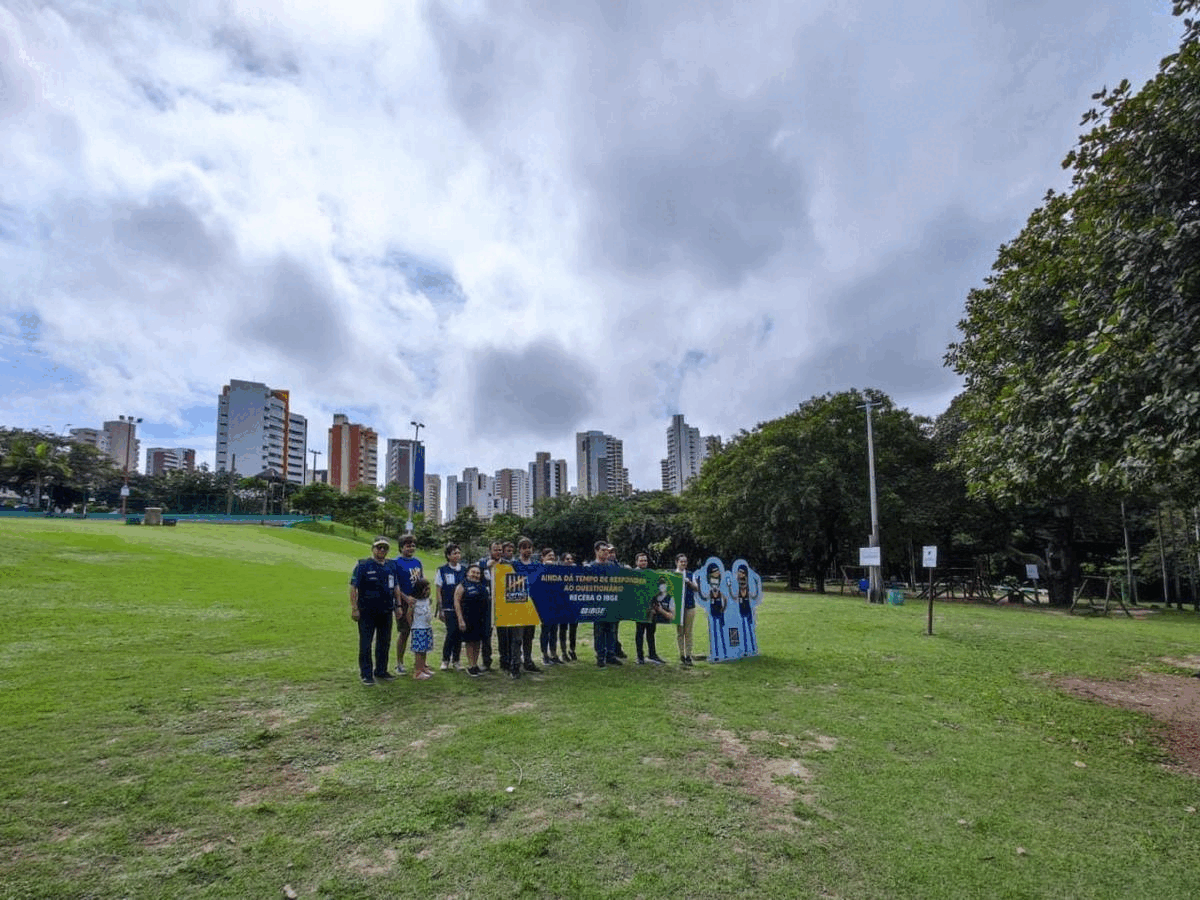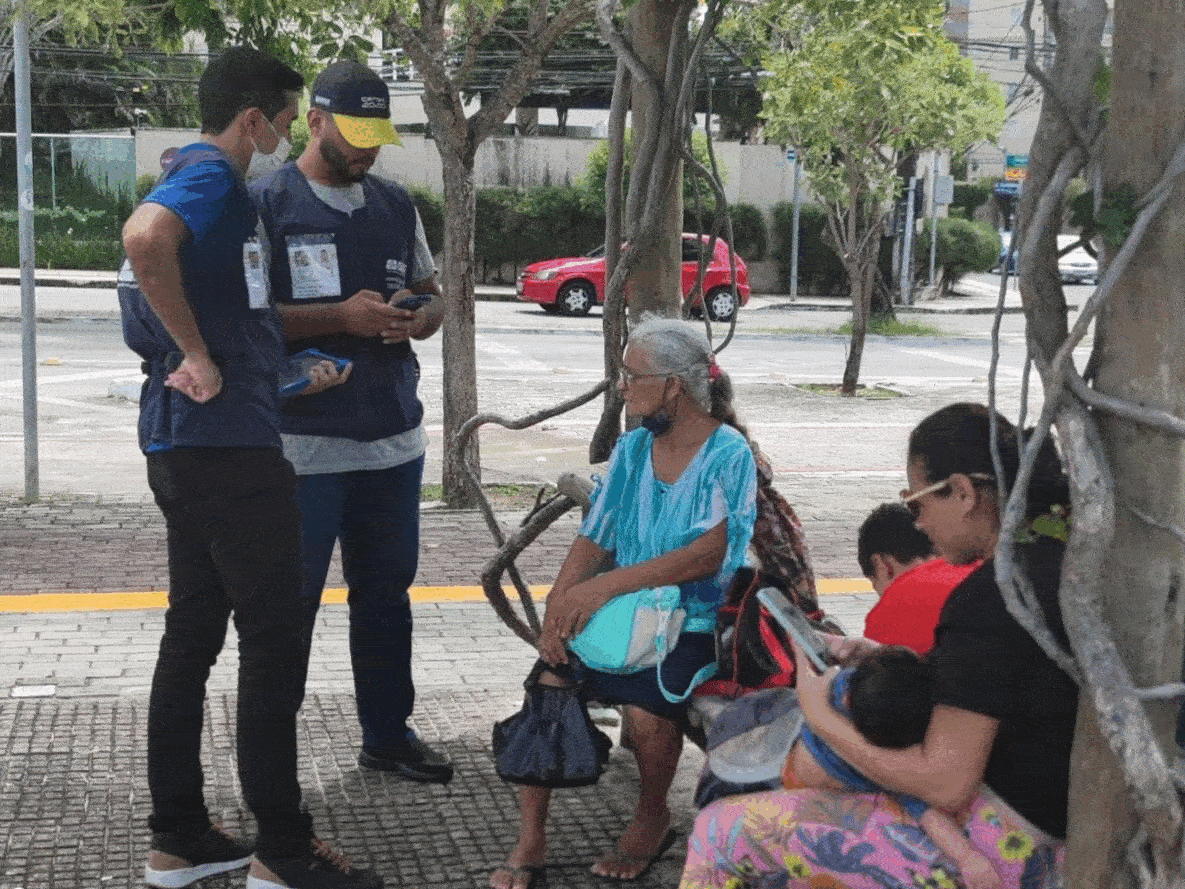Parque do Cocó in Fortaleza-CE headquarters 2022 Census action targeted at residents of condos
April 19, 2023 14h39 | Last Updated: May 05, 2023 17h59
Initiated in March, the 2022 Population Census verification stage presupposes the return of enumerators and supervisors to households where residents were absent or refused to answer. To make this work viable, the IBGE has sought to raise awareness among populations residing in areas with high non-response rates.
With the success of the action carried out in March in subnormal agglomerates (known as communities, favelas, stilt houses, etc.), the IBGE sought this time to contemplate another population that has also been a challenge for the Census: condominium residents. So, the IBGE promoted last Saturday (15) the National Census Mobilization Day in Condominiums. In several parts of the country, actions were carried out in areas of high-cost condominiums, where people with higher incomes live.
In Fortaleza-CE, the awareness action took place in the Cocó State Park, located in a region of the capital with lots of condominiums, including the Cocó, Edson Queiroz, Aldeota, Meireles, Varjota and Papicu neighborhoods. The largest natural park in an urban area in the North and Northeast, Parque do Cocó (Cocó State Park) is a permanent preservation area and receives hundreds of visitors every day interested in ecological trails, boat trips, physical activities and cultural activities.

In Fortaleza-CE, the National Census Mobilization Day in Condominiums was held at Parque do Cocó
The action promoted by the State Superintendence of the IBGE in Ceará (SES/CE) was designed so as not to pollute the park or disturb the visitors' walk. Instead of pamphlets and a loudspeaker, a banner and the Census mascot totem were used. Census coordinators, supervisors and enumerators approached the visitors, checking those who had not been censused and immediately completing the questionnaire. Some copies of the School Atlas were also distributed to the families addressed at the location.

Instead of pamphlets, other advertisement strategies...
The Superintendent of the IBGE in Ceará, Francisco Lopes was also present and, in addition to contributing to public awareness, was interviewed as well by the press vehicles that were there to publicize the action. “With this mobilization, we hope that people who live in condominiums will be able aware of the importnce of answering and providing data to the Census”, declared the Superintendent to the O Povo newspaper.

The press was invited to cover the event.
Census in condos
The 2022 Population Census still faces a major challenge in its verification stage: reaching people who live in condominiums. Whether horizontal or vertical, condominium arrangements are more present in big cities, as they offer residents an option of a more confortable and calmer environment in the midst of a hectic and unsafe routine. In the Metropolitan Area of Fortaleza, for example, there are more than 241,000 housing units, which represent 18.2% of households, according to 2019 data from the Continuous National Household Sample Survey (PNAD) focused on the theme General Characteristics of Households and Residents.
On the other hand, voluntary isolation poses a greater challenge to accessing these tenants, and may hinder various actions, such as the census. Until this Saturday (15), the capital Fortaleza had a rate of 3.5% residents who refused to respond to the Census, in addition to 4.0% households where absences were recorded even after the five mandatory visits by the enumerator. Both indices are approximately twice as much as that registered for the state of Ceará, which has 1.8% of refusals and 1.9% of absences, revealing that, in fact, there is greater difficulty in carrying out household surveys in big centers for a series of reasons.

Parque do Cocó is located in an area with a large number of condominiums.
There are several reasons given by people who refuse to receive enumerators: either for fear of losing some government benefit, for fear of falling into a scam or being a victim of some crime, for lack of time to answer the survey, for lack of knowledge about the Census and its importance for the country, as they misunderstand the census operation for actions of a specific politician or party, among others. In condominiums, the challenge becomes much greater, as many other barriers are imposed, and the impediment may begin with the condo management, the doorman or the electronic entrance, preventing the enumerator even from speaking directly with the residents.
Actions aimed at condo residents
Throughout the 2022 Population Census, and even before its beginning, several actions were designed and carried out by the SES/CE in order to reach these people who live in condominium arrangements. Meetings with condominium administrators, partnerships with associations, interviews in programs aimed at the condominium population, participation in sectoral events, dissemination of digital material aimed at building managers and tenants, carrying out dissemination actions in noble areas and suggestion of guidelines for the press were some of the activities last year carried out by the Coordination of Census Dissemination.
The local effort adds to the national actions, since the same challenge is present in metropolises throughout the country. The options for completing the questionnaire by telephone and on the Internet, the visit notice left to the resident via message sheet, the posting of posters at the entrances and receptions of the buildings to identify the enumerator, the distribution of specific promotional material for the condominium residents and the very introduction of the Disque-Censo are some of the initiatives developed to make census work as easy as possible, especially in condominium areas. The National Census Mobilization Day in Condominiums, held last Saturday (15) is yet another attempt to reach this audience before the completion of the census operation.

The National Census Mobilization in Condominiums was yet another attempt to reach out to condo residents.
